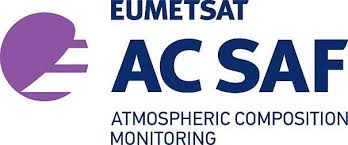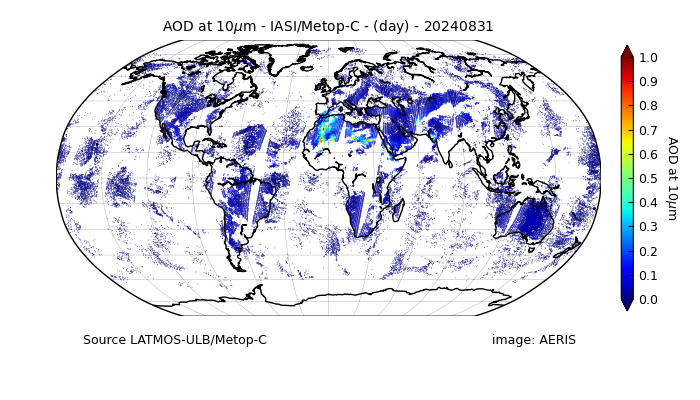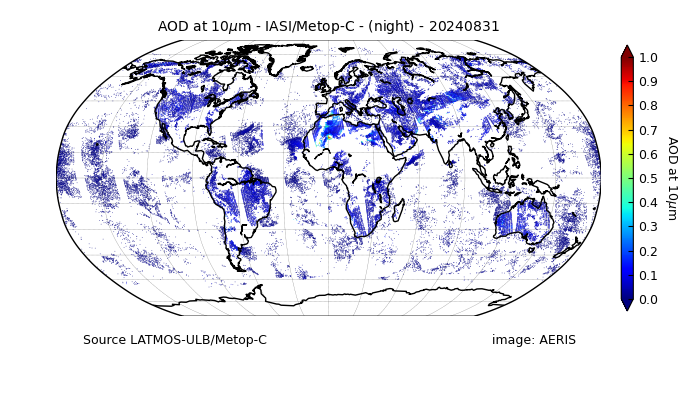Daily IASI dust (demonstrational)
Description
The daily IASI dust product from Metop-B and Metop-C provides dust optical depths at 10 µm with associated estimated errors. A flag summarizes the quality of each observation: 0 for the unreliable data that should in most cases be removed/filtered out, and 1 for the most reliable. This is the result of the postfilter explained in section 4.2.5 of the ATBD. In addition to time indications and geographic coordinates, orbit, scan and pixel numbers are used to identify data, and a flag allows you to identify day and night data. Climatological plumes altitudes used in dust optical depths retrieval are provided as auxiliary data.
Type
Daily.
Theoretical basis
The retrieval of this product is based on two steps: the calculation for each IASI observation of a sensitive hyperspectral dust index and the conversion of this index to dust optical depth au 10 µm via an artificial feedforward neural network.
Processing
The dust index is derived from a Jacobian, encompassing a typical infrared dust signature and a covariance matrix, derived from spectra without observable quantities of dust. The conversion to optical depths relies on a neural network (V9.0), trained from a database of synthetic spectra, a CALIPSO dust climatology and IASI L2 meteorological data (pressure, temperature, humidity profiles). The retrieval algorithm has been developed at ULB in collaboration with LATMOS, to perform global retrievals of dust optical depth.
Units and spatial resolution
The dust optical depth at 10µm and the associated error are unitless. The plume altitude is given in kilometer. In 8 seconds a total of 120 views are collected over a swath of ∼2200 km, divided as 30 arrays of four individual pixels varying in size from 36 x π km2 at nadir (circular pixel 12 km in diameter) to 10 x 20 x π km2 at larger viewing angles (elliptical pixel).
Validation
IASI dust measurements have been compared with ground-based coarse mode aerosol measurements from the AErosol Robotic NETwork in Clarisse et al. (2019) by converting dust optical depth at 10 µm in optical depth at 550 nm. The overall assessment is favorable, with standard deviation in line with estimated uncertainties, low biases, and high correlation coefficients.
Benchmarking
The product is currently running at ULB. As soon as the product will be implemented at EUMETSAT, internal daily reports will assess the daily match between the offline local product and the operational EUMETSAT product.
Dissemination
File format
This product is available in NetCDF format.
Algorithm version information
V9.0 (neural network)
Documents
- Product user manual
- Algorithm theoretical basis document
- Publication related to validation: Clarisse, L. et al.: "A decadal data set of global atmospheric dust retrieved from IASI satellite measurements" Journal of Geophysical Research, Atmospheres, 124, 1618–1647, 2019. https://doi.org/10.1029/2018JD029701


